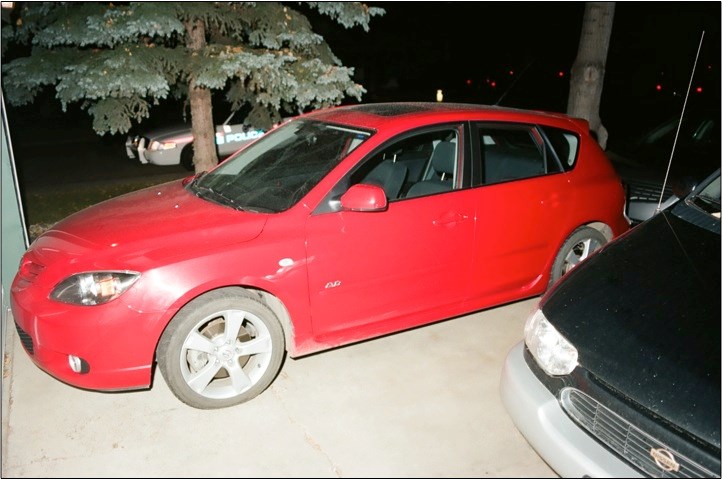St. Albert filmmaker Mark Twitchell was confronted with the innumerable lies he told police, friends and loved ones before and after being charged with the murder of Johnny Altinger.
Twitchell faced a string of questions about past deceptions while being cross-examined Thursday by Crown prosecutor Avril Inglis. Twitchell took the stand in his defence yesterday when he told the jury he was responsible for Altinger's death, but it was self-defence.
Twitchell testified he was planning a movie project, book and online “urban legend,” and had lured Altinger to a rented garage in southside Edmonton in support of that work.
Inglis focused on Twitchell's pattern of misleading people, including his wife Jess who believed Twitchell had a day job at the time of the encounter and knew nothing of her husband's extramarital affair during the same period.
“You carried on weeks if not months of lies, correct?” Inglis asked.
Just minutes after he had stabbed Altinger, Twitchell spoke to his wife and told her he was at the gym — another lie, Inglis said.
She noted the lies Twitchell emailed to Altinger's friends including a cryptic status update he put on the deceased's MSN Messenger profile that read: “I have a one way ticket to heaven and I am not coming back.”
“You wrote that about the man who died in front of you several days earlier,” Inglis said.
Twitchell frequently said he felt had no choice but to continue the lies in an attempt to delay police investigators. He even admitted the story he told about getting Altinger's vehicle would never hold up.
“The email I sent to Tabler is like throwing myself under the bus, but I was still trying to crawl back to the curb, he said.
Inglis noted the elaborate lies he told to police during his two video-taped interviews.
“You weren't just lying, you were lying to the best of your abilities.”
During the interview with homicide Det. Bill Clark, the officer tried to convince Twitchell to tell him what really happened, suggesting the truth would be hard to live with.
“You would be surprised what I could live with,” Twitchell replied in the video.
Inglis asked Twitchell about that section. He said he meant he was surprised he been able to live with the guilt and emotions about killing Altinger.
Twitchell said he purposely kept his emotions at bay to avoid breaking down, adding that after the Clark interview he did come apart, especially after confessing about the lies he had told his wife.
Inglis asked Twitchell about an email he sent after an apparent emotional breakdown. The message encouraged his friends not to co-operate with the police.
After delving into the deceptions, Inglis asked more pointed questions about Twitchell's multi-format psychosis layering entertainment project, which he explained was his reason for luring Altinger to the garage.
The project, which he testified he renamed to a multi-angle psychosis layering entertainment to fit with the acronym “MAPLE,” would consist of a feature film, novel and online urban legend. He said all the components were supposed to blend together and create the illusion that it could be real.
Twitchell said he recruited Altinger and Gilles Tetreault to come to the garage and take part because, based on their online profiles, he believed they would play along and post accounts online when the movie came out, adding to the impression the whole plot could be real.
When asked why Twitchell did not recruit his friends to spread these online rumours he said he didn't believe they would be able to keep up the ruse.
“There is no way those guys would have kept a secret.”
Inglis also asked why, after coming up with this radical new media format, he never told anyone about it or wrote something down describing it.
Twitchell said he had sketched out the idea on a piece of paper, but said mostly he didn't need to because it was his own idea.
More to come …




